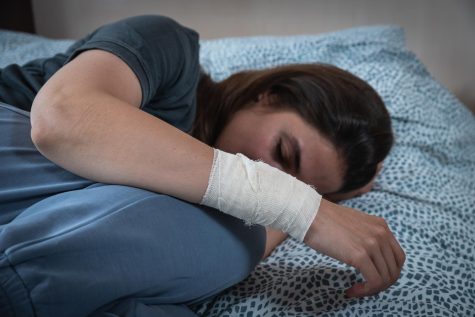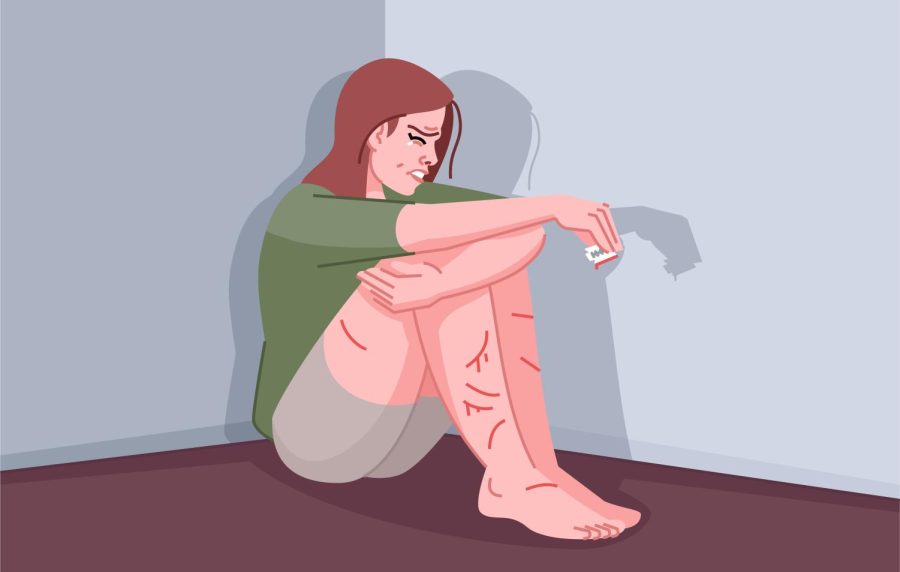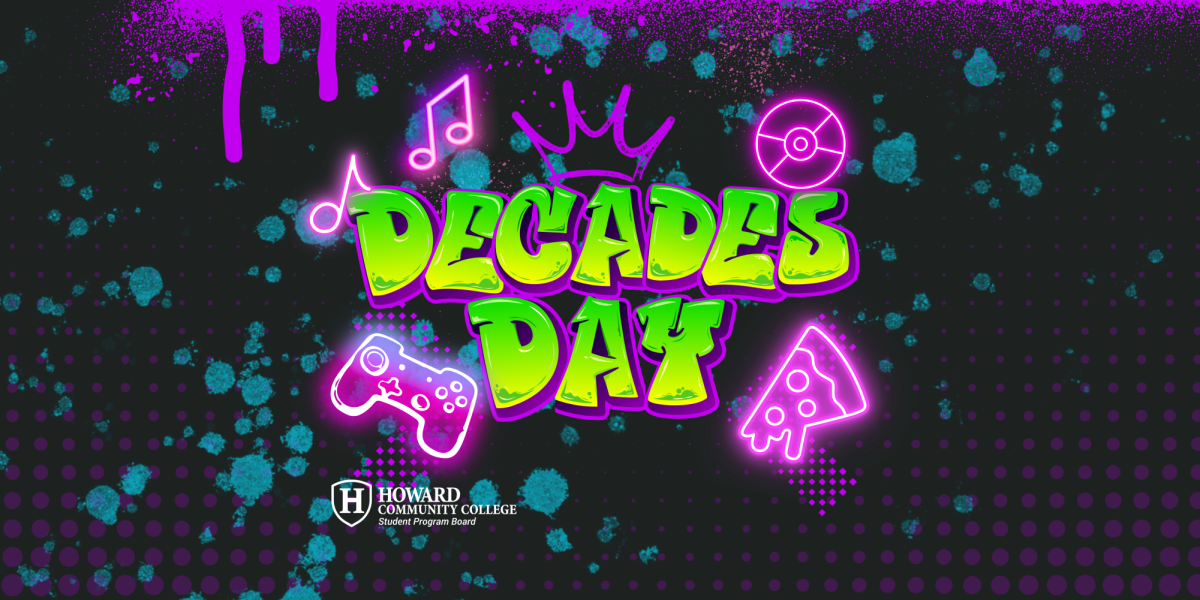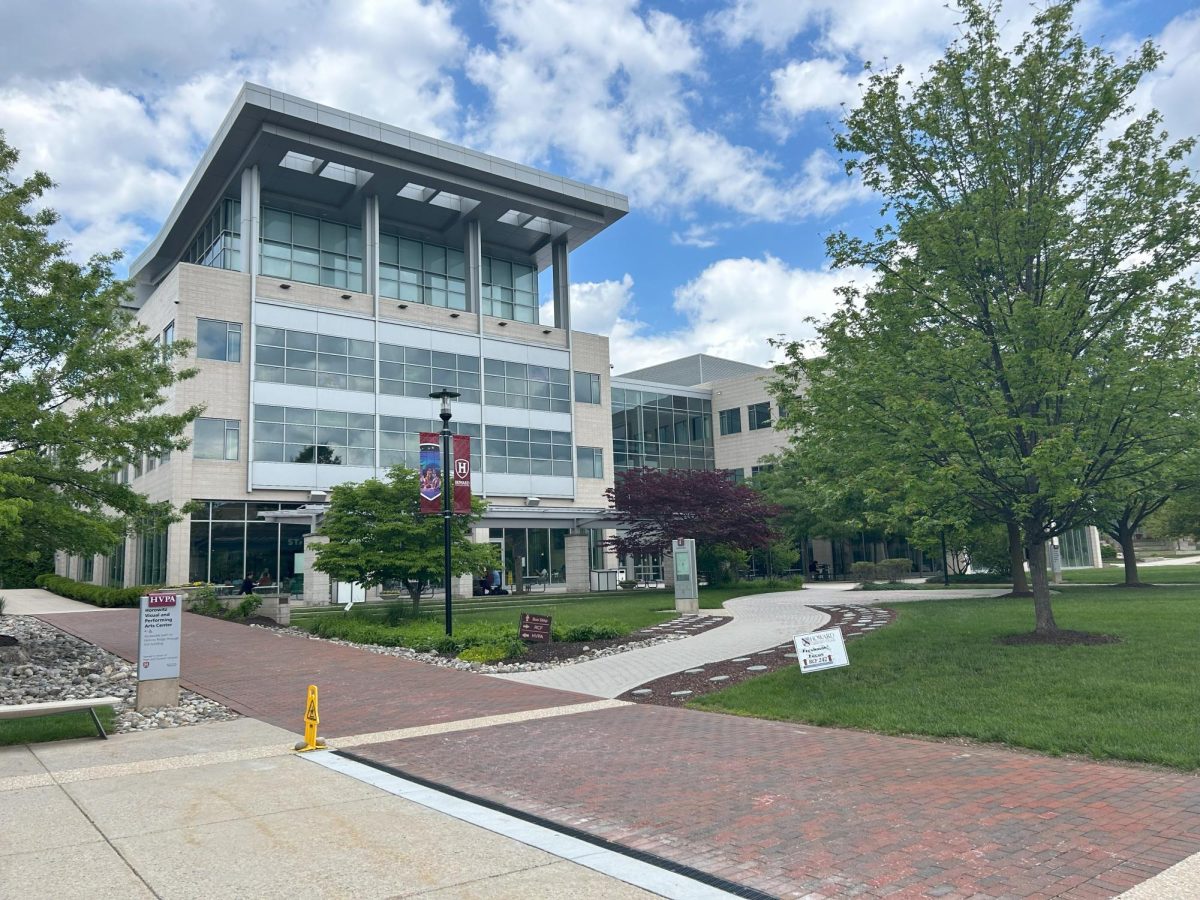Understanding Non-Suicidal Self-Injury And Its Impact On College Students
Self-harm addiction visualization of a distraught woman holding a razor blade.
February 22, 2023
Commonly, people mistake self-injury with a suicide attempt, but these terms are not interchangeable. People can engage in self-harm behaviors with no suicide intentions at all, leading to what is known as non-suicidal self-injury, or NSSI.
Typical self-harm behaviors include cutting, burning, scratching or punching one’s skin. People with NSSI can be self-harming on a regular basis, forming an unhealthy addiction.
To better understand why someone might want to inflict pain on themselves can be related to why someone might want to drink alcohol or use drugs. It helps one to cope with their problems. Instead of feeling “drunk” or “high,” it is an emotional and mental high that helps to release internal pain into a physical pain.
It is sometimes tricky to understand why someone would feel better by hurting themselves, but the concept to consider is that they never really feel the pain. They have disassociated the feelings from physical pain that we would all normally feel into an emotional release that produces euphoria but only for short periods of time.
The reasons as to why people self-harm include escaping from reality and its problems, punishing themselves for the emotions they have, feeling in control of their pain and using their self-harm as an expression they cannot convey openly to others.
Even though NSSI does not include suicide intentions in the beginning, the Journal of Adolescent Health conducted a study that revealed “NSSI is a strong predictor of later suicide attempts.”
Natalie, a sophomore in high school, shares that she started self-harming in 8th grade. “Eventually it became a nightly habit. Come home, have a shower, cut, repeat. I always felt guilty afterwards,” Natalie said.
NSSI in young adolescents has the highest percentage among older age groups. The most common age for people to be engaging in self-harm behavior is from 15 to 24 years old, which means high school and college students are at elevated risk for self-harm behavior.
The Impact of NSSI on College Students
NSSI can have a significant impact on students’ mental health and academic performance. About 1 in 5 students have admitted to self-harming while in college. In fact, research showed that first-year college students engaged in more self-harm compared to when they were sophomores. This reveals the common behavior and mentality that most college students want to hurt themselves to release emotional pain, but why?
First-year college students may be especially prone to non-suicidal self-injury because they are experiencing a major transition in their life. The added stress and pressure of an unknown environment, the challenges of rigorous classes, increased independence from parents and changing social relationships can sometimes lead students to self-harm.
Kylie, a freshman in college, who is recently 13 months clean of self-harm, shares her story on the I Am Sober app where people with any addiction can track their sobriety and empower others who have the same addiction and sober dates as them.
When asked what triggers her to self-harm, Kylie said, “Feelings of self hate or if someone mentions self-harm in a graphic way.” Before and after self-harming, “I usually feel emotionally numb and it’s usually the same after, but the pain helps take my mind off of everything else,” Kylie said.

Since the issue of NSSI has increased overtime, college students who are struggling should seek counseling and psychological services offered at their school. Always know there are people waiting to help and provide support for overcoming these challenges.
Between students and counselors, each must do their part in reducing the behavior of NSSI as repeated self-injury is a risk for depression and suicide. A student may be surprised to learn that often the best way to have an emotional release is to convey their feelings to someone rather than communicating it on their body.
Self-Injury Awareness Month is March 1, 2023. If an encounter ever occurs where a loved one is seen with self-harm on their body, do not dismiss it—tell them they are loved, find them support and never be too quick to assume their self-harm was a suicide attempt as they could be struggling with non-suicidal self-injury instead.
Mental Health Services at HCC
- Counseling Services
- Howard Community College offers both personal and group counseling to help students.
- Emergency Services
- Local emergency counseling services include The Howard County Mobile Crisis Team, Grassroots Crisis Intervention and Hope Works of Howard County.







